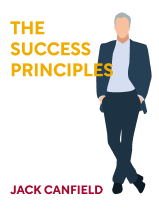

This article is an excerpt from the Shortform book guide to "The Success Principles" by Jack Canfield. Shortform has the world's best summaries and analyses of books you should be reading.
Like this article? Sign up for a free trial here .
Do you aspire to get wealthy one day? Where does one even start when it comes to building wealth?
In life, you get what you focus on, and the same is true for wealth. To become wealthy, choose to become wealthy. This requires a fundamental shift in mindset, but once you’ve made this shift, you will be better attuned to spotting opportunities and aligning your actions accordingly.
Here are some tips on how to get wealthy, no matter your current financial situation.
Who Is Wealthy?
We tend to think that rich people are famous, but this isn’t necessarily the case. In 2014, the U.S. had about 9.6 million millionaires, the majority of whom were ordinary people who used smart saving strategies to grow their wealth. They make saving and investing money a priority: They direct money toward their savings or investments first, then live off whatever is left.
If you want to understand how to become wealthy, first understand your current financial situation.
Understand Your Current Finances
Many people aren’t conscious of what they spend money on, how much they’d need to save to retire comfortably, or even how to save for retirement. Taking steps to understand your personal finances will position you to grow wealthy in the way you choose. Here are the steps:
- Develop financial literacy. Learning about finances can help you prepare for retirement, save for the things and experiences that are important to you, and more. Canfield suggests reading at least one book a month about finances to grow your understanding of the subject. View Canfield’s recommendations here.
- Calculate your net worth. Use the formula Net worth = Assets (the value of things you own) – Liabilities (your debts). You can calculate it yourself by tallying your assets and liabilities and using the previous equation. Or, use digital tools to do so, or have a financial planner do it.
- Calculate what you need for retirement. Meeting with a financial planner can help you calculate how much money to save for retirement, as can digital tools and software. This is a baseline: Once you decide what being wealthy means to you and how this changes your expenses, you’ll likely need to adjust. (See the next section, “Begin Your Journey Toward Wealth” to learn more).
- Track your spending. Make a list of your fixed monthly expenses, like housing, Internet service, and gym membership. Look at your expenses from the previous six to 12 months and calculate your average monthly variable expenses. Examples of variable expenses include going to the movies, doctor visits, and your water bill. Finally, for one month, write down everything you spend money on, no matter how small, to gain awareness of your spending habits.
Begin Your Journey Toward Wealth

———End of Preview———
Like what you just read? Read the rest of the world's best book summary and analysis of Jack Canfield's "The Success Principles" at Shortform .
Here's what you'll find in our full The Success Principles summary :
- The 67 principles to help anyone achieve their goals and dreams
- Why achieving your goals requires you to invest your time and effort
- How to take responsibility for your own life






